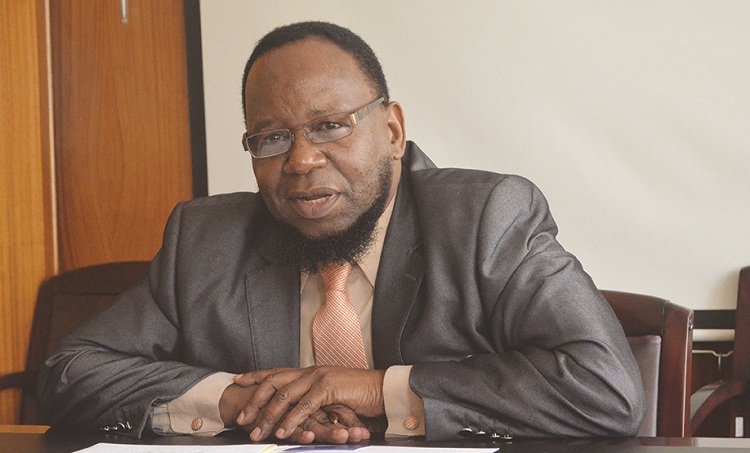
The Sunday News

Miriam Mangwaya
VONGAI Nganga’s son passed his Grade Seven examinations with six units at Madondo, a rural primary school in Chikomba District, Mashonaland West province.
An uncle offered to pay fees for him at a boarding school, so, like many other Zimbabwean parents, Nganga tried to use the government’s electronic Ministry Application Platform (eMAP), an internet-based enrolment system introduced in December 2016.
But Nganga did not have a smartphone and had never before set her hands on a computer. She had to board a bus to Chivhu, her nearest town, to get internet access. At a cyber café, she paid $2 to access the internet for an hour. She didn’t know how to use a computer, so she asked for assistance and paid $5 for the service.
The following day, she had to board another bus to St Francis of Assisi High School to inquire whether her son had been offered a place. Unfortunately, he had not.
The distraught mother had to spend more money to go to Daramombe and Kwenda, the other schools she had applied to, to check if her son had been accepted.
Like Nganga, many rural parents experienced these hurdles as they tried to secure places at better schools for their children.
E-MAP’s accessibility is still a nightmare to rural parents who cannot appreciate its convenience.
Poverty, lack of internet infrastructure and low computer literacy, among other things, stand in the way of rural parents such that, even if they want to embrace eMAP, they just cannot.
According to the Zimbabwe National Statistics Agency (ZimStat)’s September 2016 report on poverty, 6% of people in the country are living in poverty, which is more pronounced in rural than in urban areas.
If the majority of the rural people are surviving below the poverty datum line, they cannot afford internet services or buy the smartphones which their urban counterparts use to conveniently get onto eMAP.
In its 2016 final report, the Postal and Telecommunications Regulatory Authority of Zimbabwe (POTRAZ) revealed that there are fewer 3G and Long Term Evolution (LTE) base stations that enhance stronger internet connectivity in the rural areas than there are in urban areas.
As a result, broadband, which refers to high speed and always available internet connection, is sparse in rural areas. It means there is a digital divide between urban and rural areas in term of internet access.
While mobile penetration is above 90% in the country, internet penetration on the other hand is still around 50%, with lower usage in rural areas, according to Postal and Telecommunications Regulatory Authority of Zimbabwe (Potraz). With this digital divide, it means the rural parents will have challenges to log onto the platform and secure a place at the time those in the urban areas are participating on the platform. Rural parents, therefore, lag behind.
Those parents with fast internet connectivity will get the places first, while those without will struggle. As a result, the rural child is deprived of a fair opportunity to be enrolled at a better school.
In other words, no matter how intelligent they might be, rural children are put at a disadvantage in being enrolled at schools of their choice through the use of eMAP.
According to the 2015 ZimStat Multiple Indicator Cluster Survey (Mics) report on education, literacy levels increase with an increase in the wealth of a household. Therefore, in rural areas, where poverty is more pronounced, computer literacy, which is essential for participation on the online application platform, is also low.
The rural parents need effective awareness campaigns on how eMAP works before they can participate on the platform at the same level as urban dwellers.
However, the Government has not turned a blind eye to the plight of rural people.
President Robert Mugabe launched the Presidential Computerisation Programme in 2012, targeting rural schools to break the digital divide in computer access. Those computers can be used to promote the use of eMAP in rural areas.
However, without electricity, the computers cannot work and the rural parents remain at a disadvantage when it comes to online participation.
The Rural Electrification Programme was launched to ensure power connectivity in rural areas, but most areas have not yet been electrified, hence challenges in internet access persist.
The permanent secretary of the Ministry of Primary and Secondary Education, Dr Sylvia Utete-Masango, has said eMAP was introduced to fight corruption and ease costs incurred by parents because of costly entrance tests.
The electronic enrolment system is convenient, cheap and transparent, but if the barriers that make it difficult for rural parents to participate are not addressed, the platform may work to further marginalise rural people.
Primary and Secondary Education Minister DrLazarus Dokora should make hay while the sun is still shining and avoid last minute reformations in the enrolment system that may cause confusion in the 2018 Form One enrolment.
The writer is a journalism student at the National University of Science and Technology




